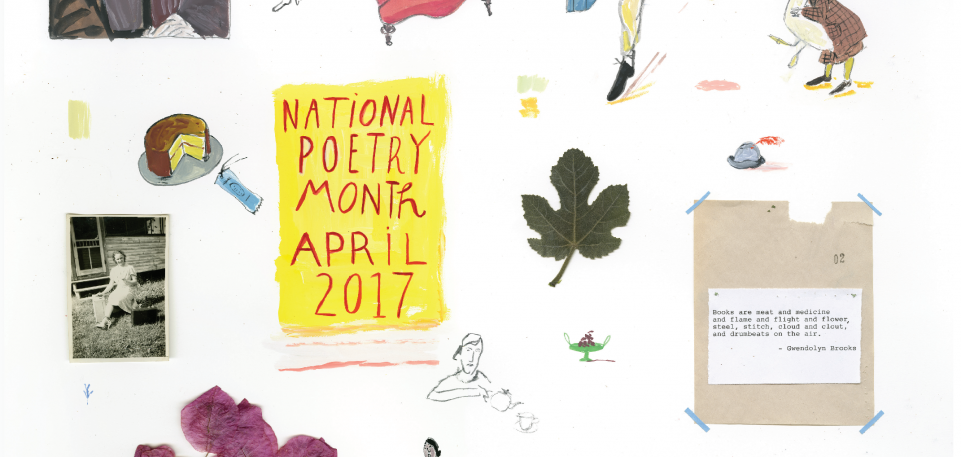Political Poetry: A Starting Point

Jeannette Mooney ’20 / Emertainment Monthly Staff Writer
Politics have been discussed in poetry for as long as the medium has existed. Subjects such as government, economics, race, gender, class, and war have been praised and torn to shreds by poets throughout history. Political poetry as a genre, however, flourished during the twentieth century in particular. In American counterculture discussion flourished, laying the groundwork for the political poetry written today. The Harlem Renaissance gave a new voice to legally and socially oppressed African Americans. Poets were also outspoken supporters and opponents of the Civil Rights Movement and Vietnam War respectively. From the charged politics of the twenty-first century has emerged a new era for political poetry, its poets just as outspoken as their predecessors. Here is an extremely limited list of political poets from both the twentieth and twenty-first centuries, many of them activists and all of them passionate about their work.
Nazim Hikmet
Born in 1902, Nazim Hikmet was raised in Istanbul and received his formal education in Moscow. He returned to Turkey after it gained independence from the post-World War I Allied occupation. Not long after he was arrested for his involvement in a leftist magazine. Though he later returned to Moscow, this would not be the last time Hikmet was arrested for expressing his radical beliefs through his work.
Considered to be the first modern Turkish poet, as well as one of the great international poets of the twentieth century, Hikmet used poetry to discuss politics and culture in both Turkey and Moscow, and was vocal about his experience in the Turkish prison system.
Allen Ginsberg
Author of “Howl” and a leading figure of the Beat Generation, which was a movement composed of authors whose work explored American culture and politics in the post-World War II era, Allen Ginsberg was an influential activist as well as poet. He participated in peaceful protests against the Vietnam war and the government’s policies toward drugs.
He used his poetry to voice his controversial views on capitalism, militarism, sexuality, conformity, and materialism. His most well-known poem, “Howl,” was subject to an obscenity trial for depicting homosexuality.
Langston Hughes
A playwright, novelist, and poet, Langston Hughes was a titan of the Harlem Renaissance. His work was directed toward the average person, African Americans especially. His goal in writing poetry was to capture the experience of African Americans through the personal stories of individual African Americans. As a result, his work was widely read in America during his life and after.
Hughes had a tremendous impact on the literary scene of the Harlem Renaissance in his youth and laid the foundation for the Civil Rights movement. He continued writing until his death in 1967. His last book of poetry, titled The Panther and the Lash; Poems of Our Times, came out that same year.
Adrienne Rich
Career evolving through seven decades, Adrienne Rich’s work in poetry and essay developed from relatively moderate in the 1950s to radical in the ’60s and ’70s. Through her prolific career in poetry, Rich brought up contentious topics such as identity, sexuality, politics, and social justice. She is perhaps most well known for her anti-war poetry during the Vietnam war, for which she won the National Book Award.
Rich’s poetry reached new political heights during the ’70s, and maintained its themes of social activism. Rich was an important leader of second wave feminist literature, and continued to write until her death in 2012.
Emanuel Xavier
An activist for LGBT+ rights and a former homeless gay teenager, Emanuel Xavier has published one novel and five poetry books, the most recent being Radiance in 2016. Xavier writes about his experiences both as a gay man and a Latino in America. Xavier frequently participates in spoken word poetry workshops and has managed benefits. He also promotes LGBT+ youth programs as well as gay Latino literature.
Safiya Sinclair
Extremely new to the political poetry scene, Safiya Sinclair is a poet to watch out for. Her first collection of poems, Cannibal, won the 2015 Prairie Schooner Book Prize in Poetry and a 2016 Writer’s Award. Her poetry examines American race relations, womanhood, and her Jamaican childhood and how it has alienated her in today’s American culture. Her style is often explosive and confrontational in its discussion of the hot-button topics that dominate political discussion today.
Very nice site with good articles.